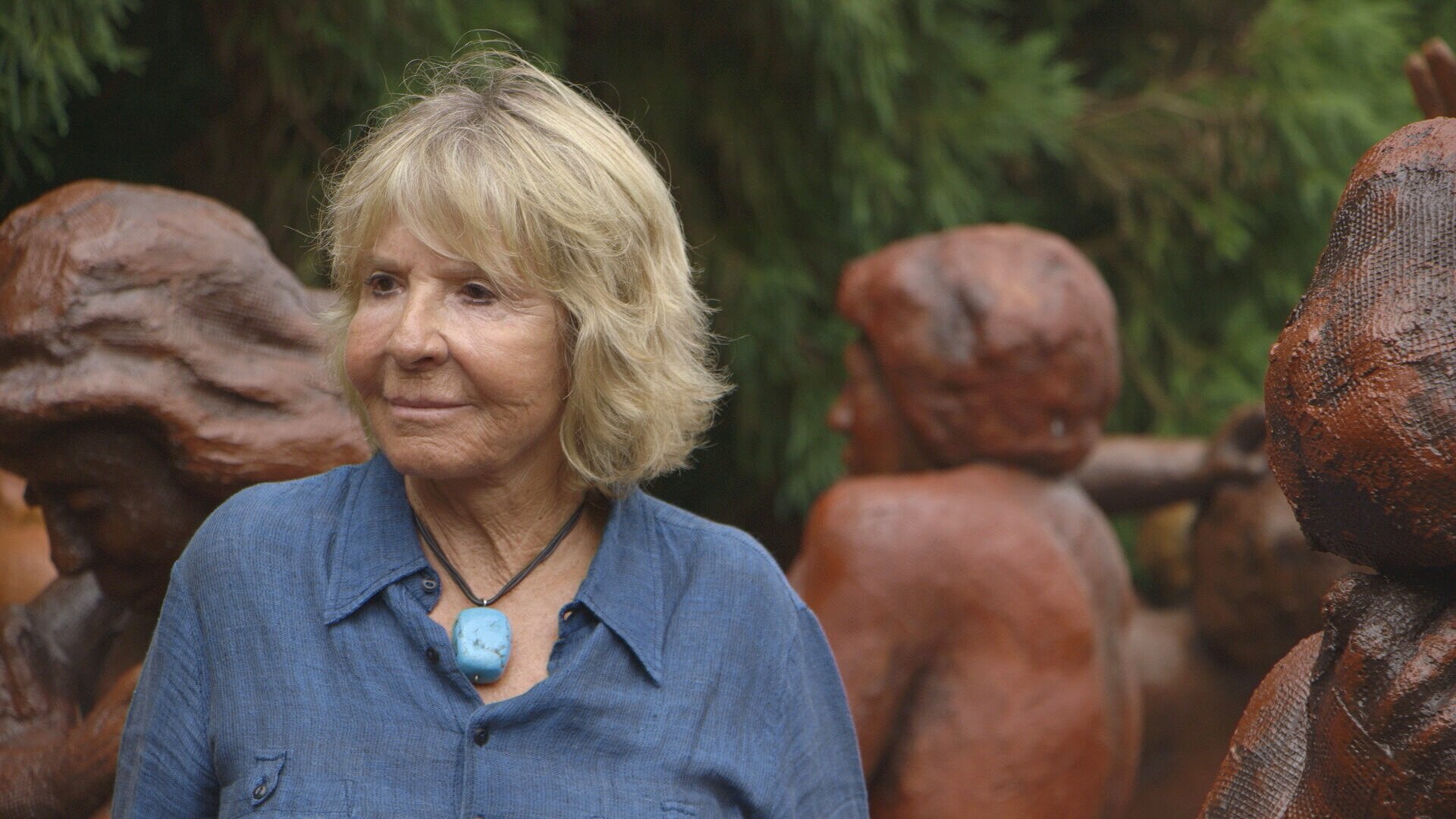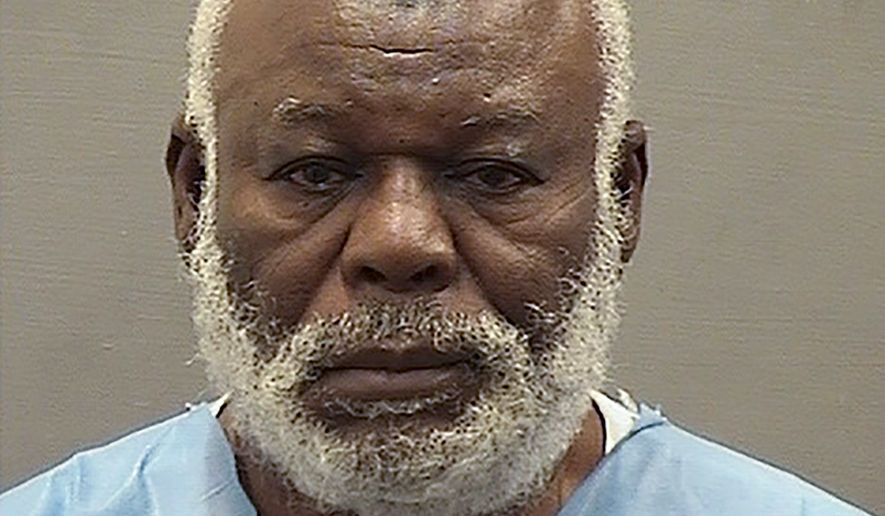Lockerbie Bust: Montauk Mom of Flight 103 Victim Buoyed by Bombmaker’s Arrest

Suse Lowenstein was at her Montauk home, where she sculpted people’s reactions to learning their loved ones were killed by terrorists, when she heard the man who allegedly built the bomb used to down Pan Am Flight 103 over Lockerbie, Scotland, killing all 259 people aboard — including her son — three decades ago, was arrested.
Her reaction of cautious optimism that justice may prevail this time was tempered by cynicism from watching accomplices spared punishment in the past. The long-sought development coming so close to the 34th anniversary of the December 21, 1988 bombing also reopens old wounds that dampen spirits typically heightened amid holiday season revelry.
“Finally, it’s been 34 years,” the 78-year-old sculptor thought to herself upon reading news of the arrest on Sunday, December 11. “That’s a long time to wait for justice.”

The next day, Abu Agila Mohammad Mas’ud Kheir Al-Marimi, a former Libyan intelligence official, was extradited and appeared in Washington, D.C. federal court, charged with an act of international terrorism. In addition to those aboard, 11 on the ground were also killed. Two other Libyan intelligence officials have been charged in the U.S. for their alleged involvement in the attack, but Mas’ud was the first defendant to appear in an American courtroom for prosecution.
“Although nearly 34 years have passed since the defendant’s actions, countless families have never fully recovered,” Assistant U.S. Attorney Erik Kenerson said during a court proceeding attended by victims’ relatives.
Lowenstein’s 21-year-old son, Alex, was among 35 Syracuse University students flying home for Christmas after a semester abroad. The New York-bound flight exploded less than an hour after takeoff from London. Citizens from 21 countries were killed, but the majority — 190 — were Americans.
“He loved it there,” Lowenstein recalled of her son’s semester in Scotland. But before the bombing, her mother’s intuition kicked in.
“About two weeks before his death, I was overcome with a deep, deep sense of having to go over immediately and just spend time with him, and that’s exactly what I did,” she said, recalling how he showed her around London and then she introduced him to family members in her native Hamberg, Germany before they parted ways. “It was really an amazing thing.”
After the tragedy, she contacted the families of other Flight 103 victims and asked if they would be willing to recreate the pose of their reaction upon learning news of the bombing. She spent the following 15 years creating 75 life-size nude sculptures in her garden that form a memorial titled “Dark Elegy,” which has become a rallying point in Montauk on anniversaries of the September 11, 2001 attacks and other acts of terror.

The memorial was the focus of a 2019 documentary Seat 20D. Patrons routinely visit the memorial, often hearing about it by word of mouth. More visitors are likely in the wake of the latest development.
The bombing remains the deadliest terrorist attack ever carried out on British soil. Investigators soon tied the bombing to Libya, whose government had engaged in long-running hostilities with the U.S. and other Western governments. About two years before the attack, Libya was blamed for the bombing of a Berlin disco that killed three, including two U.S. soldiers, and injured dozens of others.
The Libyan government initially balked at turning over two men previously tried in the case, Abdel Baset Ali al-Megrahi and Lamen Khalifa Fhimah, before ultimately surrendering them for prosecution before a panel of Scottish judges sitting in the Netherlands as part of a special arrangement.
In Mas’ud’s case, a newly unsealed Justice Department indictment includes three charges related to the explosion, including destruction of an aircraft, resulting in death. Prosecutors said in court that they would not be pursuing the death penalty because that punishment was not available for those specific crimes at the time the bombing occurred.
A breakthrough in the Justice Department’s investigation came when U.S. officials in 2017 received a copy of an interview that Mas’ud, a longtime explosives expert for Libya’s intelligence service, had given to Libyan law enforcement in 2012 after being taken into custody following the collapse of the government of the country’s leader, Col. Moammar Gadhafi.

In that interview, U.S. officials said, Mas’ud admitted building the bomb in the Pan Am attack and working with two other conspirators to carry it out. He also said the operation was ordered by Libyan intelligence and that Gadhafi thanked him and other members of the team after the attack, according to an FBI affidavit.
That affidavit said Mas’ud told Libyan law enforcement that he flew to Malta to meet al-Megrahi and Fhimah. He handed Fhimah a medium-sized Samsonite suitcase containing a bomb, having already been instructed to set the timer so that the device would explode exactly 11 hours later, according to the document. He then flew to Tripoli, the FBI said.
Al-Megrahi was convicted in the Netherlands while Fhimah was acquitted of all charges. Al-Megrahi was given a life sentence, but Scottish authorities released him on humanitarian grounds in 2009 after he was diagnosed with prostate cancer. He died in Tripoli, still protesting his innocence.
Lowenstein and other victims’ families balked at that compassionate release. But she remains hopeful that Mas’ud won’t be afforded the same sympathy when tried in America.
“It doesn’t bring my boy back and it doesn’t heal the hole in my heart, but if justice is being done, that’s a little bit of comfort,” she said. “The unfortunate thing always happens around the anniversary time. It kind of makes the Christmas time not really the Christmas time.”
“Dark Elegy” can be viewed daily free of charge between 10 a.m. and noon at 11 East Lake Drive in Montauk. Learn more about the piece at darkelegy103.com.
-With Associated Press



